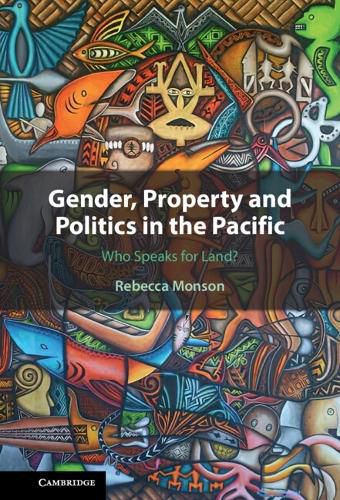Readings Newsletter
Become a Readings Member to make your shopping experience even easier.
Sign in or sign up for free!
You’re not far away from qualifying for FREE standard shipping within Australia
You’ve qualified for FREE standard shipping within Australia
The cart is loading…






Legal scholars, economists, and international development practitioners often assume that the state is capable of ‘securing’ rights to land and addressing gender inequality in land tenure. In this innovative study of land tenure in Solomon Islands, Rebecca Monson challenges these assumptions. Monson demonstrates that territorial disputes have given rise to a legal system characterised by state law, custom, and Christianity, and that the legal construction and regulation of property has, in fact, deepened gender inequalities and other forms of social difference. These processes have concentrated formal land control in the hands of a small male elite, and reproduced the state as a hypermasculine domain, with significant implications for public authority, political participation, and state formation. Drawing insights from legal scholarship and political ecology in particular, this book offers a significant study of gender and legal pluralism in the South Pacific, illuminating ongoing global debates about gender inequality, land tenure, ethno-territorial struggles and the post-colonial state.
$9.00 standard shipping within Australia
FREE standard shipping within Australia for orders over $100.00
Express & International shipping calculated at checkout
Legal scholars, economists, and international development practitioners often assume that the state is capable of ‘securing’ rights to land and addressing gender inequality in land tenure. In this innovative study of land tenure in Solomon Islands, Rebecca Monson challenges these assumptions. Monson demonstrates that territorial disputes have given rise to a legal system characterised by state law, custom, and Christianity, and that the legal construction and regulation of property has, in fact, deepened gender inequalities and other forms of social difference. These processes have concentrated formal land control in the hands of a small male elite, and reproduced the state as a hypermasculine domain, with significant implications for public authority, political participation, and state formation. Drawing insights from legal scholarship and political ecology in particular, this book offers a significant study of gender and legal pluralism in the South Pacific, illuminating ongoing global debates about gender inequality, land tenure, ethno-territorial struggles and the post-colonial state.